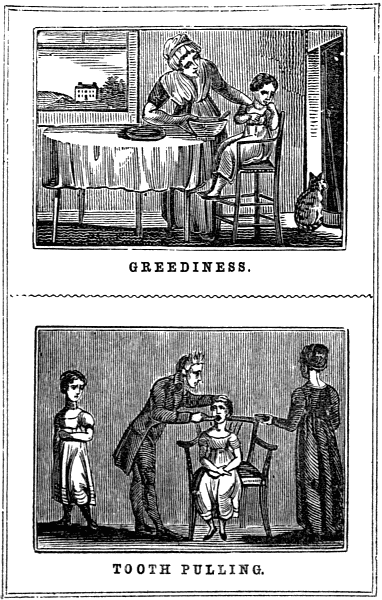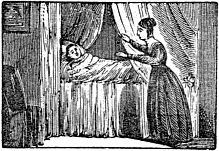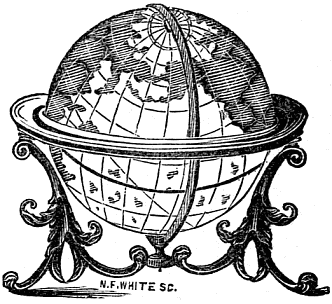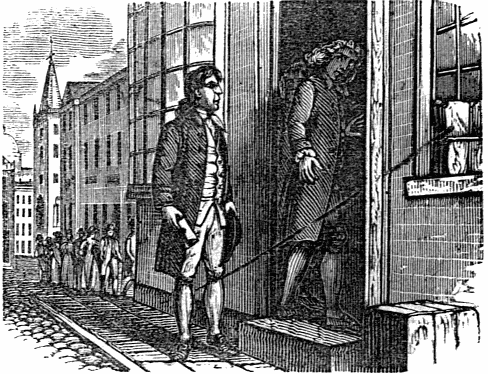
DOCTOR BOLUS
AND HIS PATIENTS.
 ld Doctor Bolus was an old fashioned Doctor, and every morning started
out with his cane, to visit his patients, sometimes taking with him his
student, a man who had taken to studying medicine at thirty years
old, in
the hope of being the successor of Doctor Bolus.
ld Doctor Bolus was an old fashioned Doctor, and every morning started
out with his cane, to visit his patients, sometimes taking with him his
student, a man who had taken to studying medicine at thirty years
old, in
the hope of being the successor of Doctor Bolus.
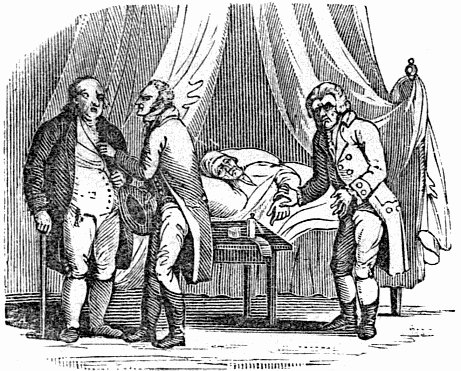
We will follow the Doctor’s rounds for one morning. First he called at the Squire’s, whose father was sick. The Doctor examined his tongue, felt his pulse, and mixed a white powder and a gray powder, giving directions for him to take a little every two hours. Then, after talking over the state of the crops with the Squire, he went on to his next patient, old black John, the colored man. John was very poor, but a good Quaker had relieved his wants and the Doctor gave him a dose of calomel, telling him he would soon be at work again.
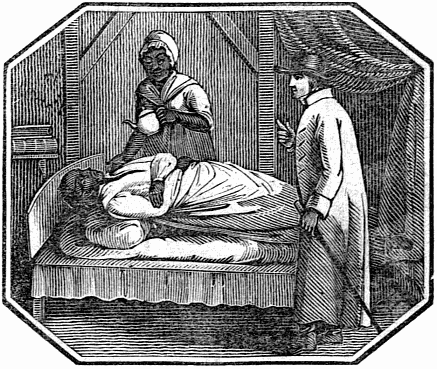
The Doctor’s next call was to see little Kitty Green, the merchant’s daughter; Kitty had meddled with a sharp knife, and cut her finger pretty severely; if she had been a poor man’s daughter it would have got well without the doctor, but rich people can afford to call the doctor for little things, so Doctor Bolus applied some salve to Kitty’s finger, and she was soon playing again.
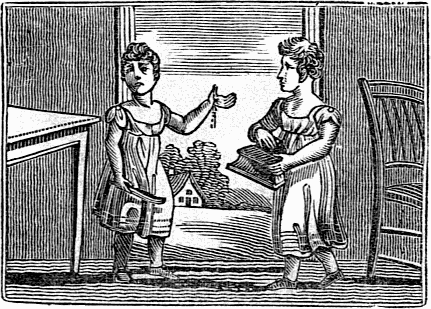
The next patient was Mrs. Droley, who always imagined she was sick, and had been one of the Doctor’s regular patients for several years; and if a few days passed without his calling on her, he was sure to be sent for. Mrs. Droley kept her room and her bed much of the time, thinking she had only strength to feed her cat. The doctor could not do her much good, but gave her a little harmless medicine.
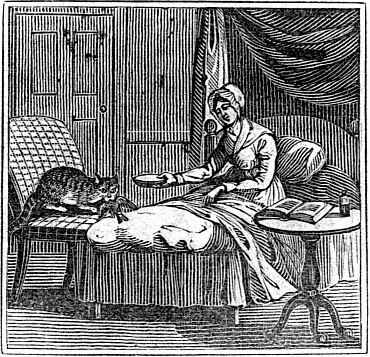
The last call the Doctor made before his dinner, was at Mrs. Smith’s. She had been sick for a long time, and a few months before this her husband had been drawn in to commit a robbery, for which he was sentenced to imprisonment for life. She was rapidly failing, and would soon die. She had mourned only that she must leave her little daughter destitute, but was now assured that a good home was provided for Mary by her friends; and she felt that she could die happy.
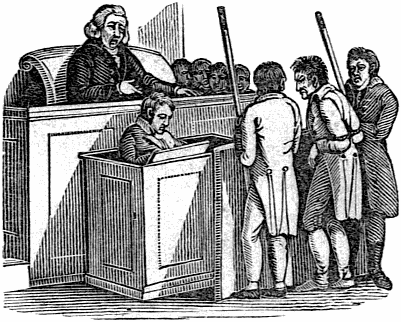
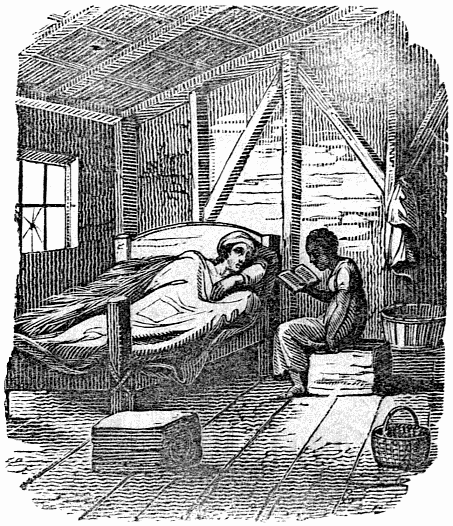
DOCTOR BOLUS
AFTER DINNER.
After dinner Doctor Bolus went to visit a very poor woman, who was sick with a lung fever, and all alone, only when a colored girl came in to help her, or to read to her. The Doctor knew he could not cure her, and only gave her a little medicine to soothe her pain.
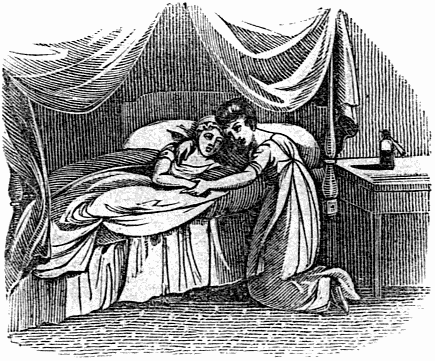
His next visit was to Susan Blake, a little girl of ten years old, who was very sick, and could not recover. She had one sister, and they were orphans. It was hard indeed for them to part, but they both knew that death would soon separate them.
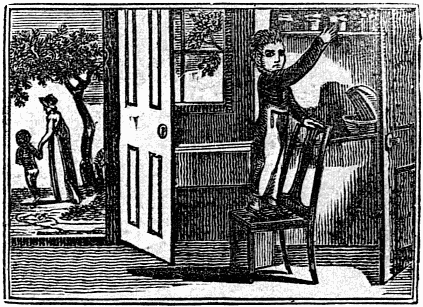
Doctor Bolus was next called to pull a tooth for a little girl, (see frontispiece,) and then went to see Joe Glutton as he was called. Joe well deserved the name for his greediness; a day or two before he had slily climbed up to a dish of sweetmeats, and eaten very freely of them; that night he was taken severely sick, and was obliged to take much bitter medicine. This was not the first time he had suffered for his greediness. The Doctor had a fine pear tree which was often robbed; when the pears were ripe, he had inserted emetics in several of the finest of them, and soon after was called to visit Joe, who had been suddenly taken with vomiting; the Doctor soon relieved him, but found he had been eating his pears.
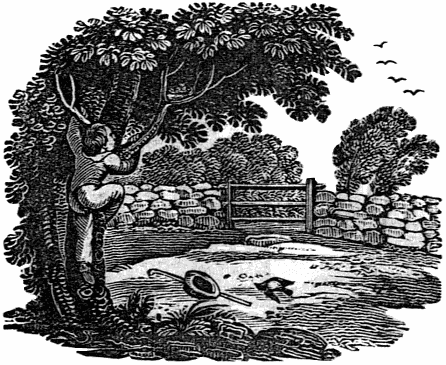
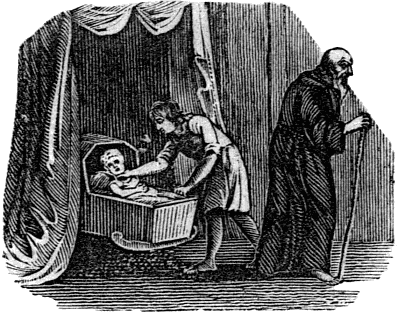
The next place was at the carpenter’s, where the baby and the grandfather were both sick. The grandfather was a very old man, and loved to tell over the story of his settling in the wilderness, when a young man. The Doctor left medicine for them, and then went on to Mrs. Thorn’s whose daughter was sick. He found the mother spinning, and the daughter trying to sew as she lay on the bed. Mrs. Thorn’s husband and six children had died with consumption, and now the last, and youngest, on whom the mother had depended for aid, was wasting away with the same disease. The mother grieved deeply, but was cheerful, and said she hoped to meet them in heaven.
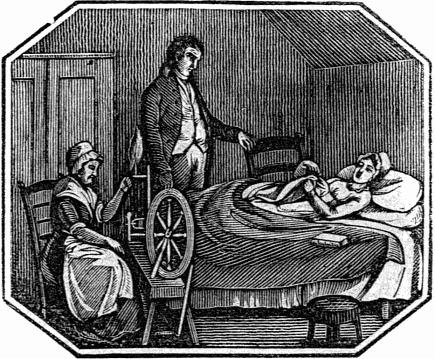
Next he called to see a little girl who had been sick for several days with a violent fever; he had been afraid she would die, but now found her better, and the danger past. Her brother was standing by her, trying to draw her attention to a brood of chickens which had been hatched since she was shut up by sickness.
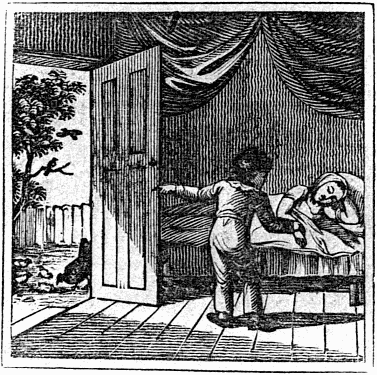
The Doctor had now finished his calls; but as he was walking home he was called to a young lady who had been with a party of young people, sailing on the pond, and in reaching over too far had fallen into the water. The party were frightened, and it was sometime before she was taken out. The Doctor tried for several hours to restore her, but it was in vain; she was dead, and the whole village mourned over the sudden and sad death.
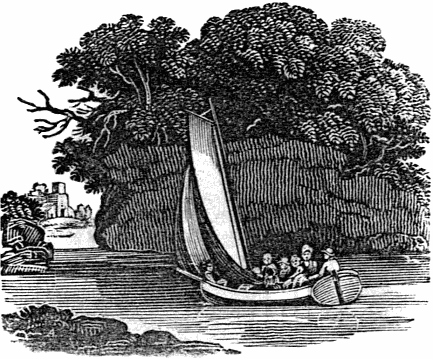
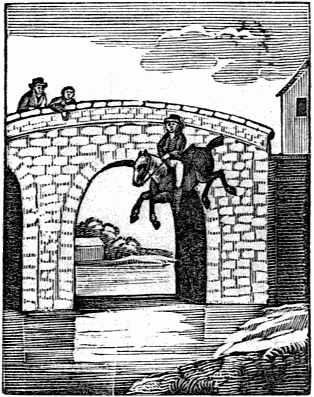
DANGEROUS LEAP.
The above is a correct sketch of a young man on horseback leaping from a bridge, at Egremont. The bridge was twenty feet high, but neither horse nor rider sustained serious injury. Men after escaping great dangers are often killed by slight causes.
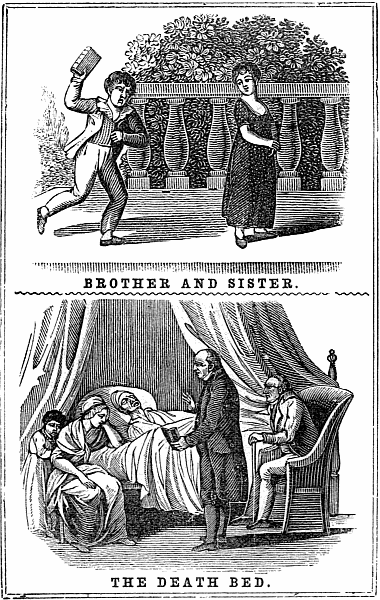
JOHN AND JANE,
THE TWO ORPHANS.
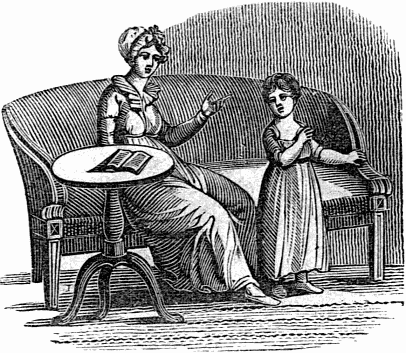
 ohn and Jane were the children of an Englishman. When they lived in
England they were well off, and were well taught by their mother, who took
much pains to lead them in the right way, and to teach them how they might
be happy
here and hereafter. They lived in a pretty cottage near the sea
shore, where they could sometimes hear the waves dash against the rocks in
a storm. They played together, ate their meals together, sometimes sharing
them with the cat; they often walked together, and frequently rode out
with their father and mother.
ohn and Jane were the children of an Englishman. When they lived in
England they were well off, and were well taught by their mother, who took
much pains to lead them in the right way, and to teach them how they might
be happy
here and hereafter. They lived in a pretty cottage near the sea
shore, where they could sometimes hear the waves dash against the rocks in
a storm. They played together, ate their meals together, sometimes sharing
them with the cat; they often walked together, and frequently rode out
with their father and mother.
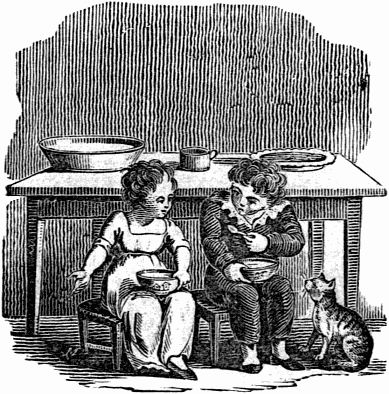
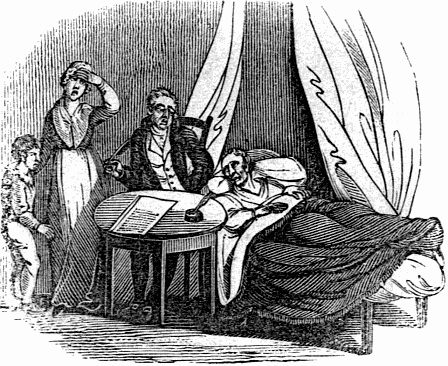
When Jane was ten years old and John eight, their father lost most of his property, and decided to go to America with his family. They crossed the ocean safely, but soon after they arrived in America their father and mother were both taken sick, and after being sick, the father for a few days, and the mother for several weeks, both died; the little property they left was seized by their landlord, and John and Jane were left entirely destitute and alone.
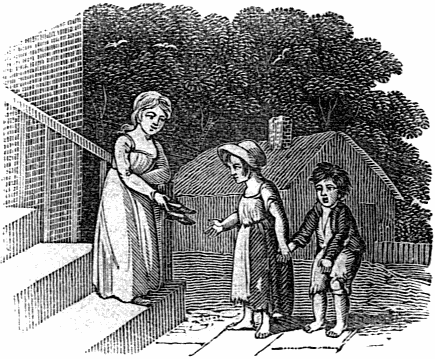
Jane knew they had an uncle in a town in Ohio, and they had no other way but to beg their way to him. They traveled several hundred miles on foot to Ohio, begging their way; at first, in the city and until they had traveled to a distance from it, people were often unkind to them; they went ragged, frequently hungry, and sometimes found it very difficult to learn their way; but after they got into the country towns many pitied them, and not only gave them food, but supplied them with clothes, and took pains to direct them on their way to the place where their uncle lived.
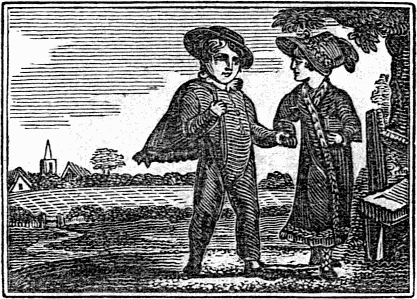
At last they reached their uncle’s; they were kindly received, and their uncle adopted them as his own children. Their sufferings were then at an end; but they never forgot their sorrowful journey, nor the good things their mother had taught them in their pleasant home in England, and tried not only to remember but to obey her teachings.
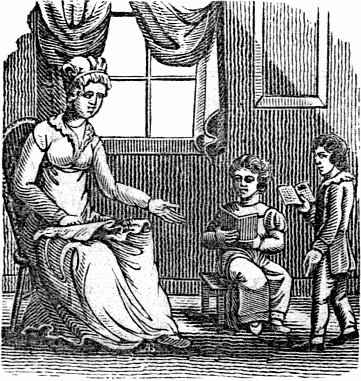
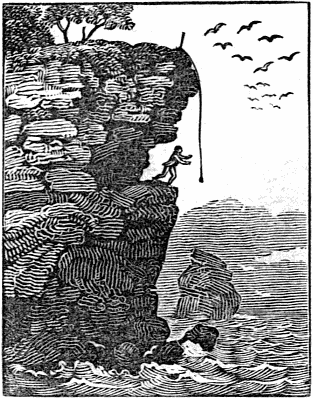
THE WELCH MOUNTAIN BOY.
“He fixed his crow-bar, attached his cord to it and descended the face of the rock. Busily employed in gathering samphire, the rope suddenly dropped from his hand.” The above is a description of a boy in a most dangerous situation, his only chance of escape being to dart out at the rope and catch it in his hand.
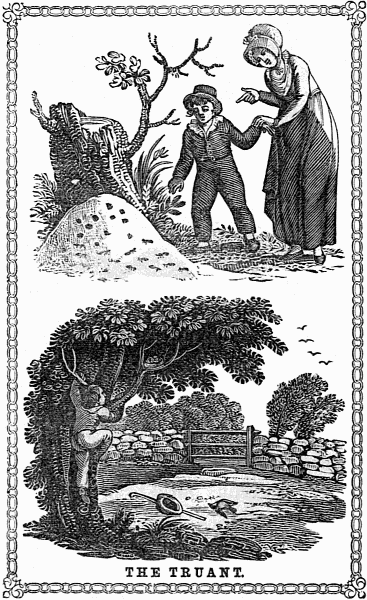
GEORGE DENTON,
THE TRUANT.
 eorge Denton was a bad boy, and was constantly getting himself or others
into trouble. One afternoon, when sent to school, he played truant, and
started for a walk, ready for any mischief that might come to his hand.
eorge Denton was a bad boy, and was constantly getting himself or others
into trouble. One afternoon, when sent to school, he played truant, and
started for a walk, ready for any mischief that might come to his hand.
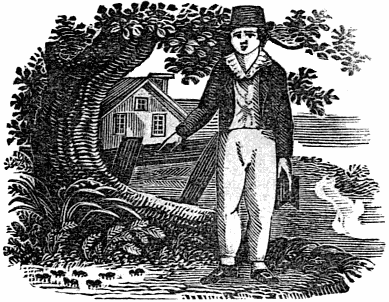
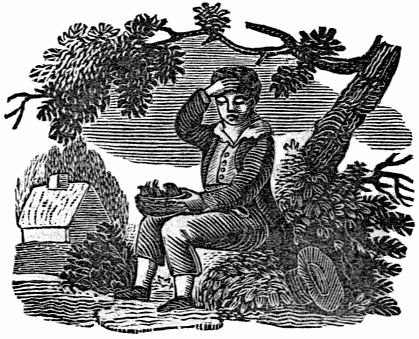
He first went into a grove not far from the school house, where one of the school boys had showed him a bird’s nest, which George promised him he would not disturb. Not regarding his promise, he now climbed the tree and got the nest, which contained several young birds; then, not knowing what to do with the nest, he sat under a tree and held it for a little while, but getting tired of this, and not knowing what to do with it, he left it in the bushes where the young birds would perish. He then went to find James, another bad boy with whom he often played, and with whom he had many times planned mischief.
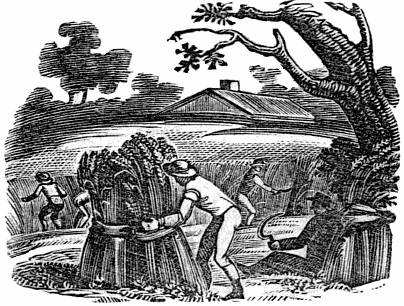
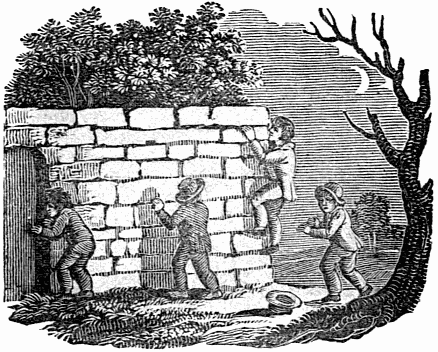
On his way he passed a field where a number of reapers were engaged in cutting the grain; coming to a spot where they had left their jackets, he removed one of them and hid it under a bush thus obliging the owner to make a long search for it after he had finished his day’s work. He found James, and with him two other boys; they were just starting to rob an orchard, and James went with them; they got their pockets full of fruit, and the other boys then left them. George and James sat under a tree by the brook, eating their fruit, till they saw an old crazy man near them, trying to cross the brook on a tree that had been laid across it. The boys jumped on the tree and shook it to frighten him; but James willing to frighten George as well as the old man, slily tripped him into the water, and then ran away.
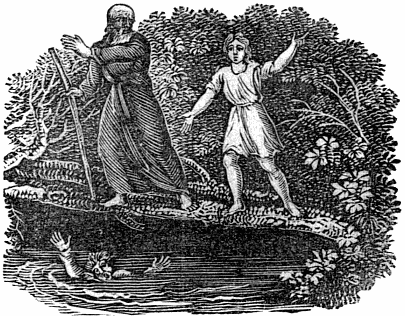
George was frightened and very angry, but scrambled out of the water, and wandered about for an hour or two in his wet clothes, fearing to go home, and wishing he had gone to school. At last he started for home; a carriage passing him, he jumped up behind it for a ride, but soon received a severe blow from the driver’s whip. He then hurt himself in jumping off the carriage, but soon reached home, wet, tired, lame and dirty, and received a severe punishment from his father.
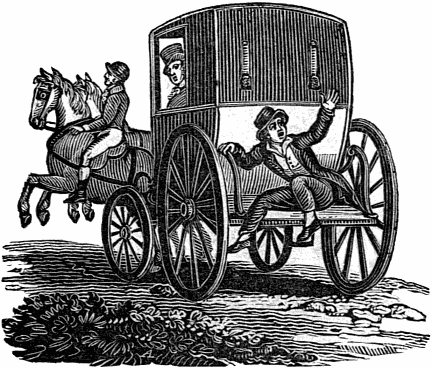
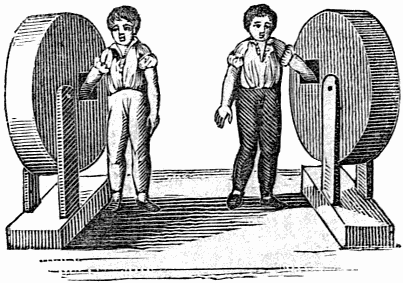
THE LOTTERY.
Above you have a picture of the drawing of a lottery. The wheels are turned to mix up the numbers; a boy then draws a number from one wheel, and then another boy draws from another wheel a blank or prize as it may be. This is a sort of gambling, and many lads have begun with buying a ticket in some little lottery, and from that been led on to shame, disgrace and ruin.
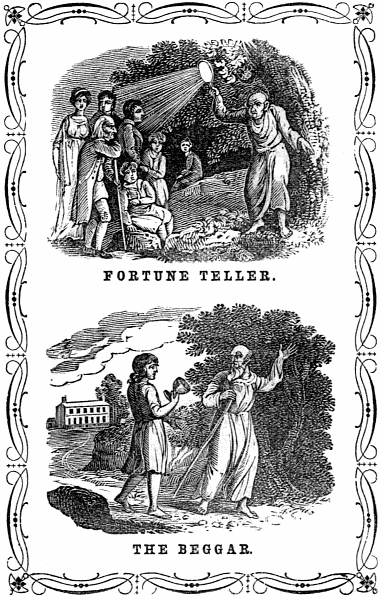
LONG JAKE,
THE ENGLISH BEGGAR.
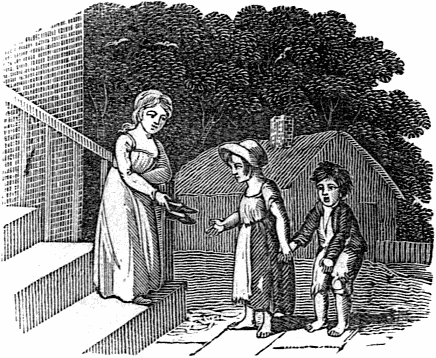
 acob Longley, or ‘long Jake,’ as he was afterwards called, was born in
London. His parents were beggars, and they trained Jacob to their
business. When very small he was sent out with an older sister that he
might learn how to beg. When
a little older, he was sent alone; sometimes
in rags, to get charity by his raggedness, at other times well dressed, to
tell a story of sickness and suffering at home. If not successful in
getting money, he was made to go without his supper, and sometimes beaten.
acob Longley, or ‘long Jake,’ as he was afterwards called, was born in
London. His parents were beggars, and they trained Jacob to their
business. When very small he was sent out with an older sister that he
might learn how to beg. When
a little older, he was sent alone; sometimes
in rags, to get charity by his raggedness, at other times well dressed, to
tell a story of sickness and suffering at home. If not successful in
getting money, he was made to go without his supper, and sometimes beaten.
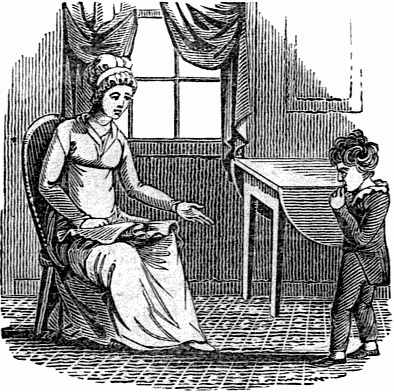
Poor Jake was never taught that lying was wrong, but was praised if he could get money by an artful story, and did not know that begging was any more dishonorable than working. How thankful ought those children to be who are taught what is right, while so many others are taught to do wrong.
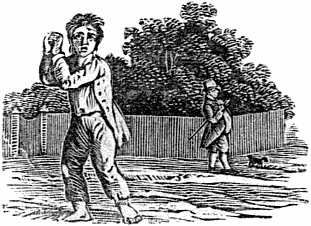
When Jake grew older, he became very expert in learning how to frame and tell a tale of wo, and how to assume an appearance of want. In this country we see little of the deception practised by beggars in other countries. The appearance of feebleness or lameness is put on, a leg is sometimes doubled up and a wooden leg substituted for it, deafness and blindness are assumed, and many other arts are resorted to, to move the charitable feelings of the benevolent.
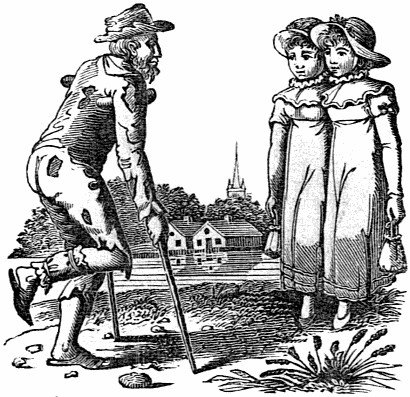
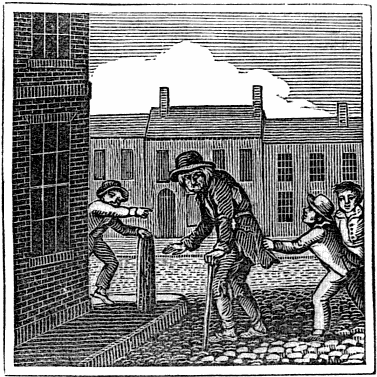
When Jake became a man he continued to beg, assuming more and more the appearance of misery; sometimes professing to be a soldier, or a wrecked sailor, sometimes pretending to have lost all he had by fire, sometimes to have been disabled by a long sickness. Sometimes he appeared to be a very old and infirm man, but when teazed by rude boys they would learn to their sorrow that he could run after them very rapidly, and lay his staff over them with heavy blows; but directly would appear a feeble old man again. Jake gained a living without work, but it was but a poor living, in ignorance, and sin, and often in want.
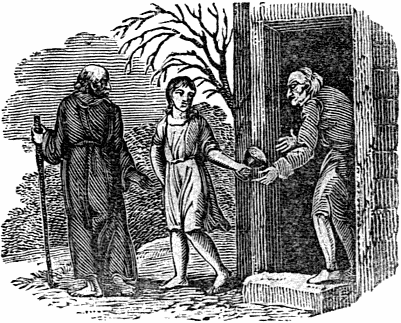
At last he came in reality to be an old man, and a fit object of charity. Too feeble to beg, he was sent to the workhouse; he had lived but a poor life here, and died in ignorance of the way to secure happiness in the life to come.
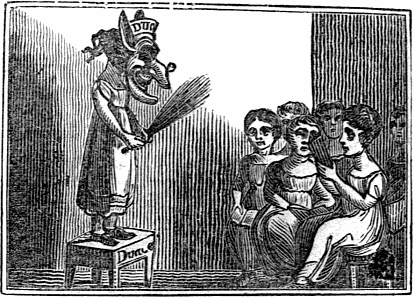
THE DUNCE CAP.
We have here a picture of Miss Judith standing on the dunce block for not learning her lesson. She did not soon forget it, nor soon fail again to learn her lesson. The dunce block and dunce cap are now out of fashion; perhaps if they were more used in school, we should have fewer grown up dunces in the world.
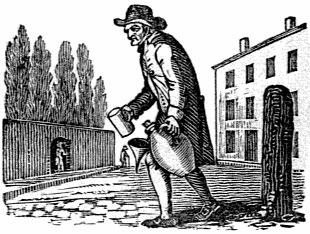
THE DRUNKARD.
“The drunkard and the glutton shall come to poverty, and drowsiness shall clothe a man with rags.”—Prov. xxiii. 21.
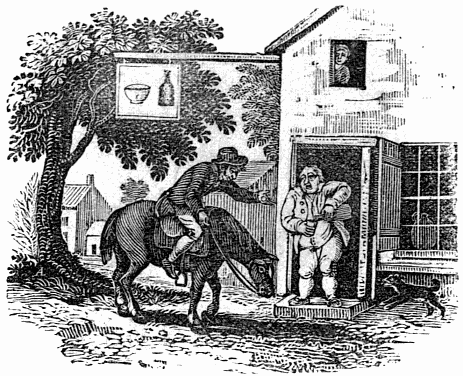
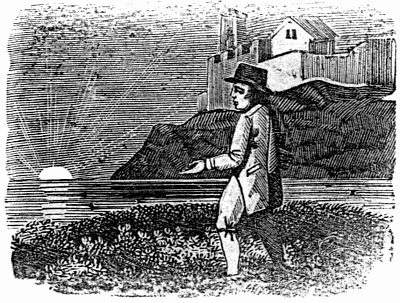
CLEANLINESS,
ITS ADVANTAGES AND DISADVANTAGES.
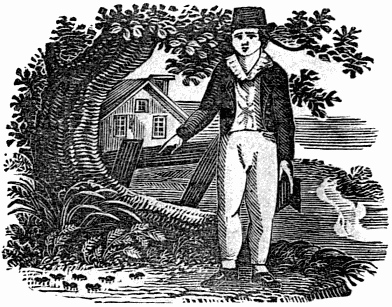
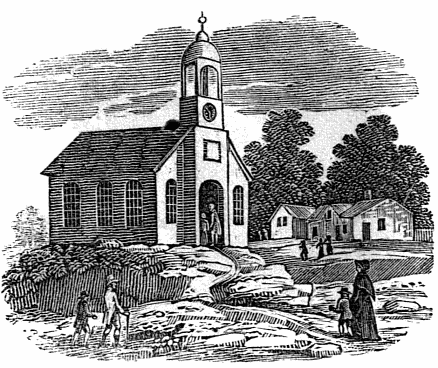
THE SABBATH.
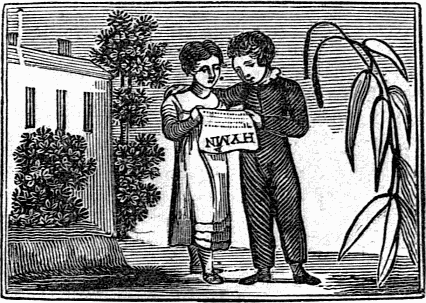
THE SAD CHANGE.
When Rufus was a little boy he behaved well, obeyed his parents, and was kind to his sister. He used to go to school and to Sunday School with her, and they studied their lessons together; but as he grew older he began to get acquainted with bad boys, and preferred playing with them in the street to playing with Maria at home. He is now a big boy, has learned to fight, and thinks it manly to smoke a cigar and to swear. His father and mother have taken a great deal of pains to induce him to break off his evil habits, but if he follows his present course, he will become a bad and miserable man, and be likely to come to an untimely end by accident or the punishment of crime.
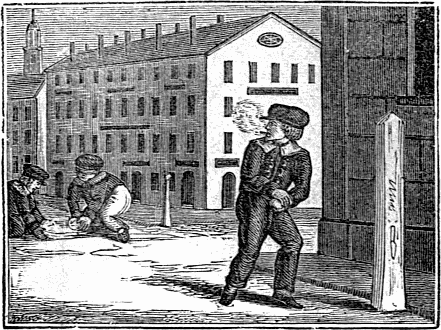
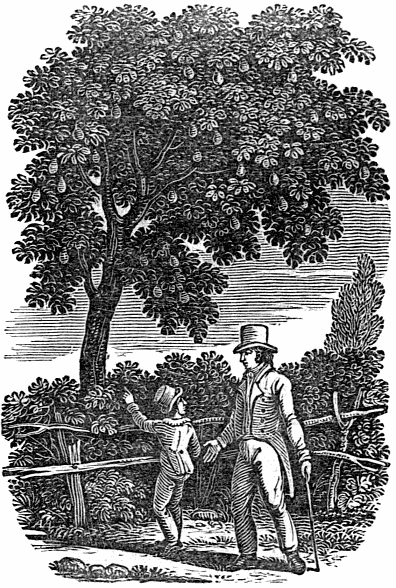
YOUNG RICHARD.
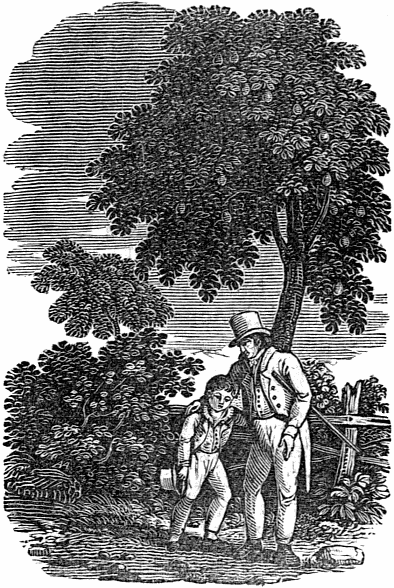
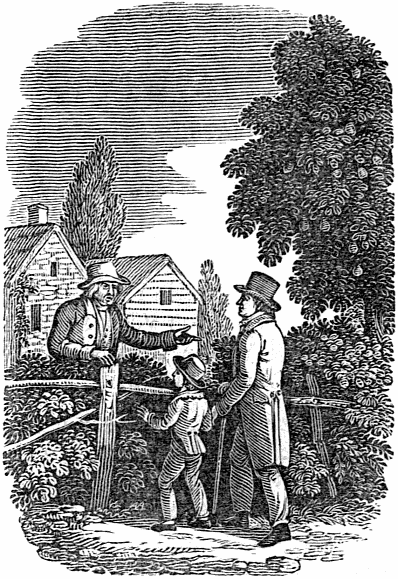
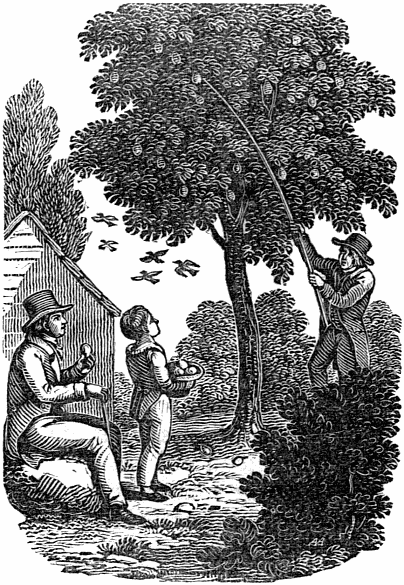
![]()
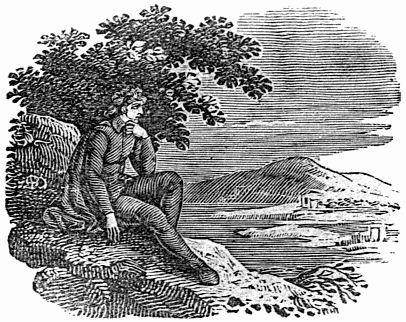
NEVER LOOK SAD
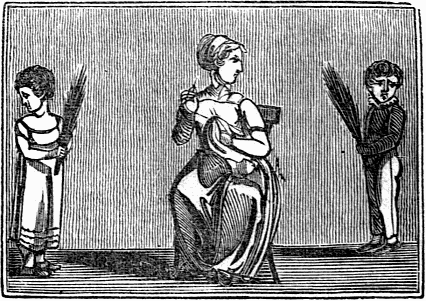
PEEVISHNESS.
George and his sister were generally good children, but sometimes they had their little difficulties. One day they were playing together while their mother was sewing, and both were peevish and fretful. Their mother spoke to them several times, and at last placed one in each corner of the room, giving each a rod to hold, and kept them there until their father came home to tea. They remembered this for a long time.
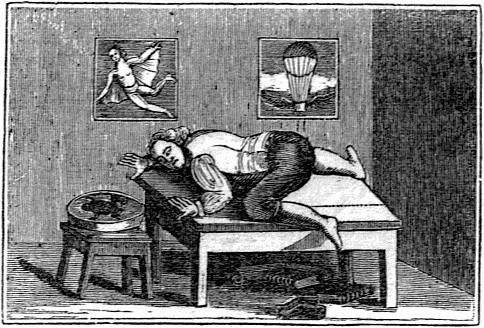
SWIMMING ON LAND.
Mr. Tibbs was afraid of the water, but having to take a journey in which it would be necessary to cross the lake, he determined to learn to swim; as he was afraid to go into the water, he placed a frog in a dish of water by the table and spreading himself on the table imitated the motions of the frog until he thought he had learned to swim, at least on the land.
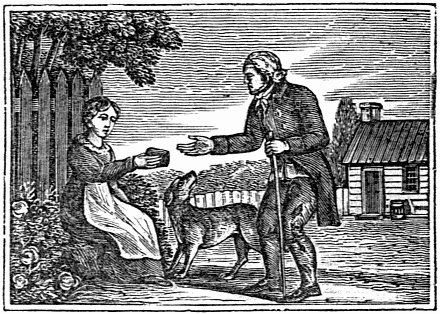
THE BEGGAR.
One morning when Sarah’s mother had gone out and left her alone, a beggar came to the gate where she was sitting, and asked for food. She gave him some bread, as she thought her mother would do, if at home; he thanked her, and as he ate it he wept bitterly, and told her that she reminded him of happy days when he had happy children and a happy home, and was happy in their love.

